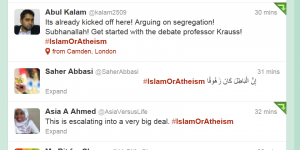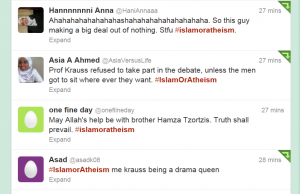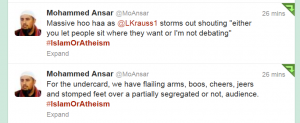Guest post by Simon Davis.
On Thursday March 7, an Athens court acquitted Greek neo-nazi Golden Dawn MP Ilias Kasidiaris on charges of assault. Outside the courthouse, Kasidiaris stated:
I am rubbing this decision in the faces of the media and sad politicians. I have a lot of opposition that today would like me to be in jail and a lot of people who want Chrysi Avgi to be on the sidelines, but we are here, we are very powerful and soon we will be dominant.
The Greek site Luben published the following account from a person who “had the misfortune of living through this seven year ordeal from the beginning”, which I have translated to English. I have spoken to several people familiar with the case who have vouched for the veracity of the account. The original in Greek is here.
———–
You are a graduate student.
You are on campus.
A car stops at a location where you are alone.
Five muscle-bound men with shaved heads and sticks beat you to a pulp and stab you in the leg.
They steal your police ID and therefore know where you live.
The only reason for their actions is your appearance.
Despite your fear, you decide to fight back.
You find out that someone had recorded the car’s license plate.
You press charges.
The police discover that the car belongs to a man by the name of “Kasidiaris”, who is a candidate for parliament in the Golden Dawn political party with 0.5% in the polls.
The court case drags on for seven years due to repeated delays.
During that time, you see the thug that stabbed you be elected to parliament.
You see him become of popular hero to a segment of society.
The day of the trial, you have to testify about your traumatic experience in front of a court room that is full of Golden Dawn members in the audience.
You ask that the trial be held in a different hall. Your request is denied.
As you describe the scene of the attack, the hostile audience mocks and teases you.
The orchestrator of the attack, the person who in previous delays of the trial would taunt you in the courthouse corridors, now speaks as if he is Mother Teresa and that he “sympathizes” and “condemns violence, as does the whole of Golden Dawn”.
How ironic.
He is found innocent of the charges.
He rubs the verdict in your face, they are all-powerful, they are dominant.
You learned your lesson. “Don’t get involved – don’t speak – it’s pointless.”
———–
You are 60 years old.
You have worked at the university your entire professional life.
Your husband is in and out of the hospital for chemotherapy.
You see five muscle bound men beating up a student on campus.
You record the license plate number.
You try to find out what happened. The students who are there tell you “I didn’t see, I don’t know, don’t involve me”.
You report the incident to the university, and you together with the victim, give a statement that you saw the license plate number to the police.
After a few days, the police officer informs you that the car belongs to a man named “Kasidiaris” that is a member of a neonazi gang. He recommends you do not get involved. (It will turn out that he gave good advice)
You know that you will go through a gruelling process, and you know that your are getting involved in a case that could put your life at risk, but you decide to do the right thing regardless of the cost.
You find out from television that you are a “top official for the SYRIZA political party” despite the fact that you have never been a member of any party.
Kasidiaris refers to you publicly as a “pimp”, claiming that you are following orders.
He states publicly that you are charged with a crime, without mentioning that this because he has sued you for perjury.
You are in and out of court for seven years as the case is repeatedly delayed.
You testify about what you witnessed.
The pro-nazi lawyer insults you and insinuates that at 60 years of age you decided to involve in a totally unrelated case a complete -at the time- unknown person, for political purposes.
The prosecutor and the judge allow the lawyer to insult you and to speak to you as if you are a criminal. They dismiss your testimony.
A reporter with spiky hair states from the witness stand that you could have very easily found the license plate number from the website indymedia. You did not even know that indymedia existed.
You are found to be an unreliable witness, as opposed to the defendant’s friends who testify that they saw him in his car that morning, who are found to be reliable despite there never having been any evidence presented that the car was located elsewhere.
The trial is over. Innocent.
Now you are charged with perjury. At 67 years of age. Your predicament continues and the court decision will weigh against you.
The newspaper “Proto Thema” publishes your name and picture which are now on neo-nazi sites alongside filthy comments.
This is what you won for your good deed.
You learned your lesson. “Don’t get involved – don’t speak – it’s pointless”
———–
You are a thug for a neonazi organization.
You write odes to Hitler on their official magazine.
You manage to become the great führer’s right hand man.
You go on raids with your car and beat people up.
One of these people dares to press charges.
Now you are a member of parliament.
Beating up a 50 year old woman and avoiding arrest for two days you manage to become a popular hero and a political star.
Seven years later when you can’t get any more continuances, you appear in court.
You have arranged to have 100 muscle-bound men sit in all the seats in the courtroom two hours before the start of the trial.
Even though your car was leased by your employer and you claimed it was in a parking lot, and even though your company asks for receipts in order to reimburse for expenses, you have no evidence to present to the court.
The judge and the prosecutor speak to you with the utmost deference. The word “defendant” is never used.
The prosecutor recommends acquittal. It is obvious that this a political conspiracy from the left.
The presiding judge agrees. Disagreeing in that atmosphere was hardly an option.
You rub the verdict in their face. You are all-powerful, you are dominant
Now they learned their lesson. “Don’t get involved – don’t speak – it’s pointless”
Simon Davis is director of online marketing at a healthcare publications company. He grew up in Greece. You can tweet him at @SimonKnowz


(This is a syndicated post. Read the original at FreeThoughtBlogs.)




